I’ve absorbed hip-hop from every region. I love what they were doing in the South. I love what they were doing deeper in the South, like in Houston and places like that. I love what they’re doing in L.A. Love what they’re doing in The Bay, really love what they’re doing in New York, and the Midwest. I’ve absorbed it all, so when you hear my music, you’re hearing me pull from all these different regions in one way or another- UnLearn The World
After multiple listens, that quote resonates differently. UnLearn the World’s latest project, ‘The God That Sins,’ subtly flashes flavors from different regions while remaining original and authentic. As soon as you press play, your attention is immediately demanded. ‘Walk On Fire’ serves as the perfect intro, as ULTW wastes no time letting the listener know what time he’s on.
Swisher Beats delivers pure lava on “God’s Favorite,” while ULTW drops jewels encapsulated in elite bars. Accompanied by Detroit heavy hitter Royce Da 5’9 with a posthumous verse from Sean Price(RIP)for extra sauce.
ULTW continues to apply pressure. The bass-heavy street anthem “The Streets Get Fed” is so intoxicating, the drums induce involuntarily neck snapping. Only a quarter of the way into the project, and it’s clear, ULTW is a top-of-the-food-chain lyricist. To think, if it wasn’t for a trip to Cuba, we may have never experienced this highly polished gem. To better understand this beautiful mind, we reached out to the man himself.
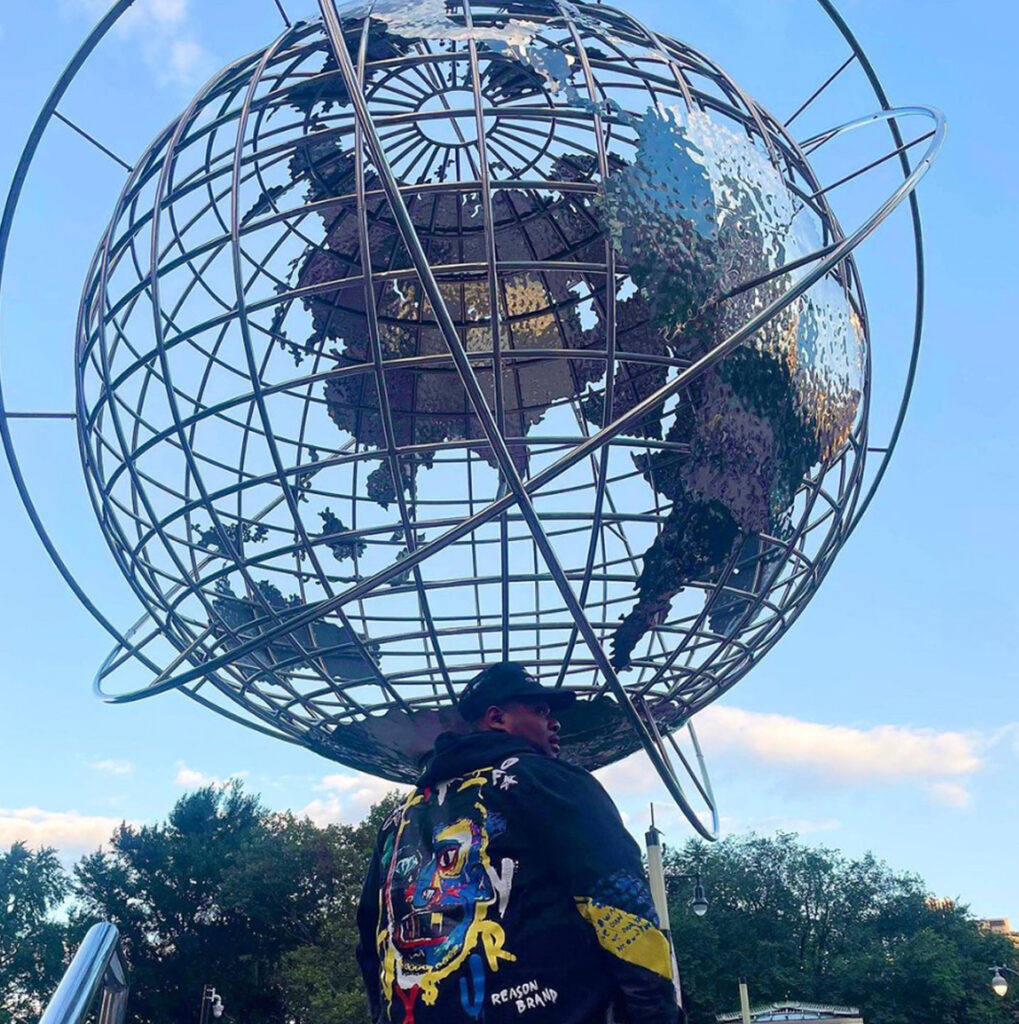
So how did it all start for you?
I always say I’m the product of the golden era. I’m a little older, so that’s the era I grew up in. Since I was 10 years old, I was listening to artists like Rakim, Krs One, Public Enemy—like everything my older brothers were playing at the time. Seeing people like that made me actually want to rap. At first, it was for fun. I was 10 years old; there’s not much I could talk about other than trying to make sense of my own life.
Then, by the time I’m 13, Nas comes out with ‘Illmatic.’ That changed my life, particularly the song ‘The World Is Yours.’ That made me want to write raps seriously. From then on, it’s been a journey.
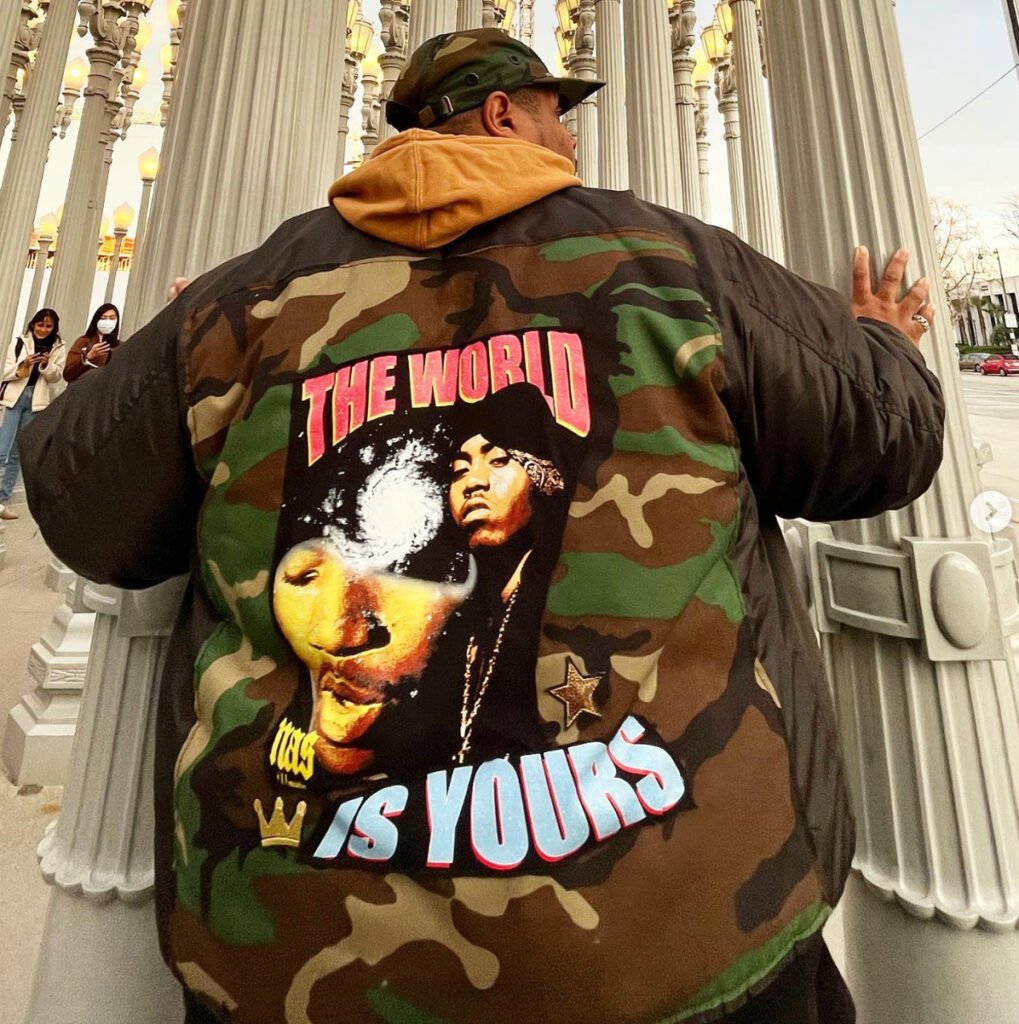
You know, being a kid in high school, rapping at lunchtime, MC battles, cyphers, talent shows, interning at record labels, just being immersed in the culture. Not only in the music industry side of it, but, you know, going to the block parties, my brothers being dancers, and my cousins being DJs. Just being raised in it, going to Rock Steady anniversaries all throughout high school and college.
Being groomed by artists like Jean Grey, Pumpkinhead (RIP), Brooklyn Axe, Skeme Team, a lot of the underground emcees I came up with in the late ’90s and early 2000s, and just evolved from there. By the time I hit the digital wave, I’m putting mixtapes out for free online. I’m developing a fanbase there while still working a regular 9-5 job. Then, about 10 years ago, I went to Cuba. Cuba changed my life. My whole perspective changed.
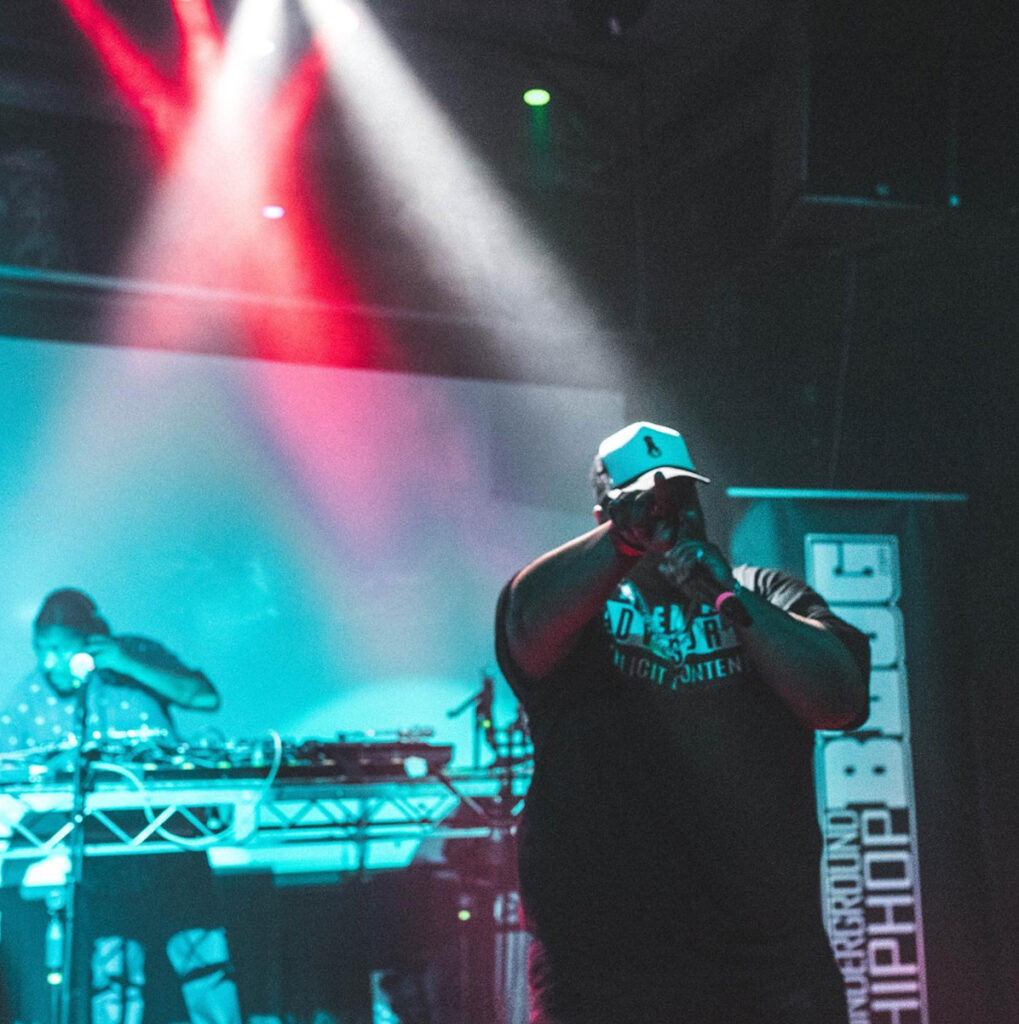
I was there as an artist. It was the first time in my adult life where I was able to be just an artist for like two weeks. It really changed everything that I was thinking about. It changed my whole perspective. So within a year of that trip, I left my job, I started becoming a teaching artist, started really tapping into the community out here in the Bay Area to be an emcee. And from then on, it’s been official. I dropped my first official album in 2015. It just continued to build momentum.
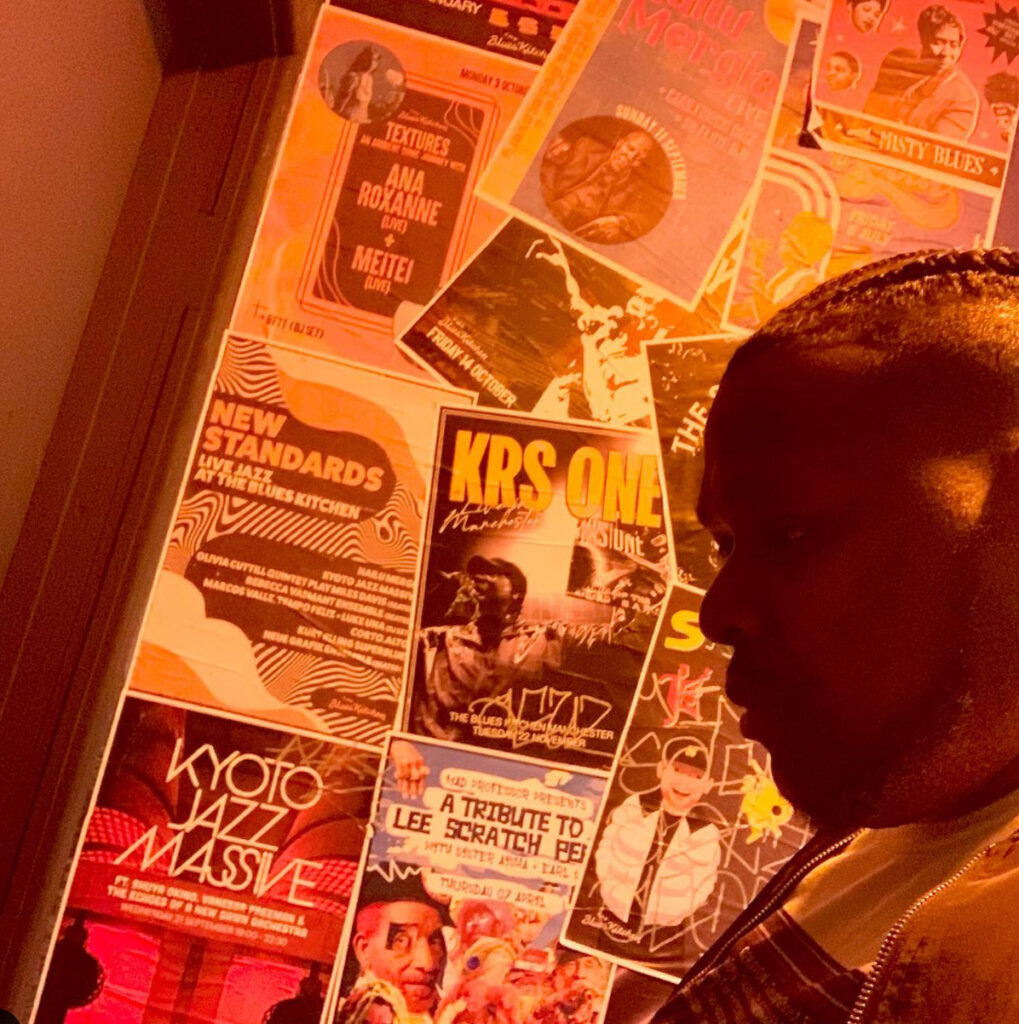
Was there a specific instance in Cuba that flipped the switch? Can you explain this growth you experienced there?
It was both personal and professional. I think on the personal side, it was one of the very first times in my adult life, especially after turning 30, that I was doing something solely for myself. Like many, I was raising kids and supporting a family while working for a boss that I despised. These are experiences that resonate with most people.
You just do what you have to do to take care of your family and make ends meet, even if it means enduring the trauma of poverty that many of us have faced. So, you try to keep the money flowing, ensuring you can pay your bills at the start of each month. And then, music becomes your creative outlet.
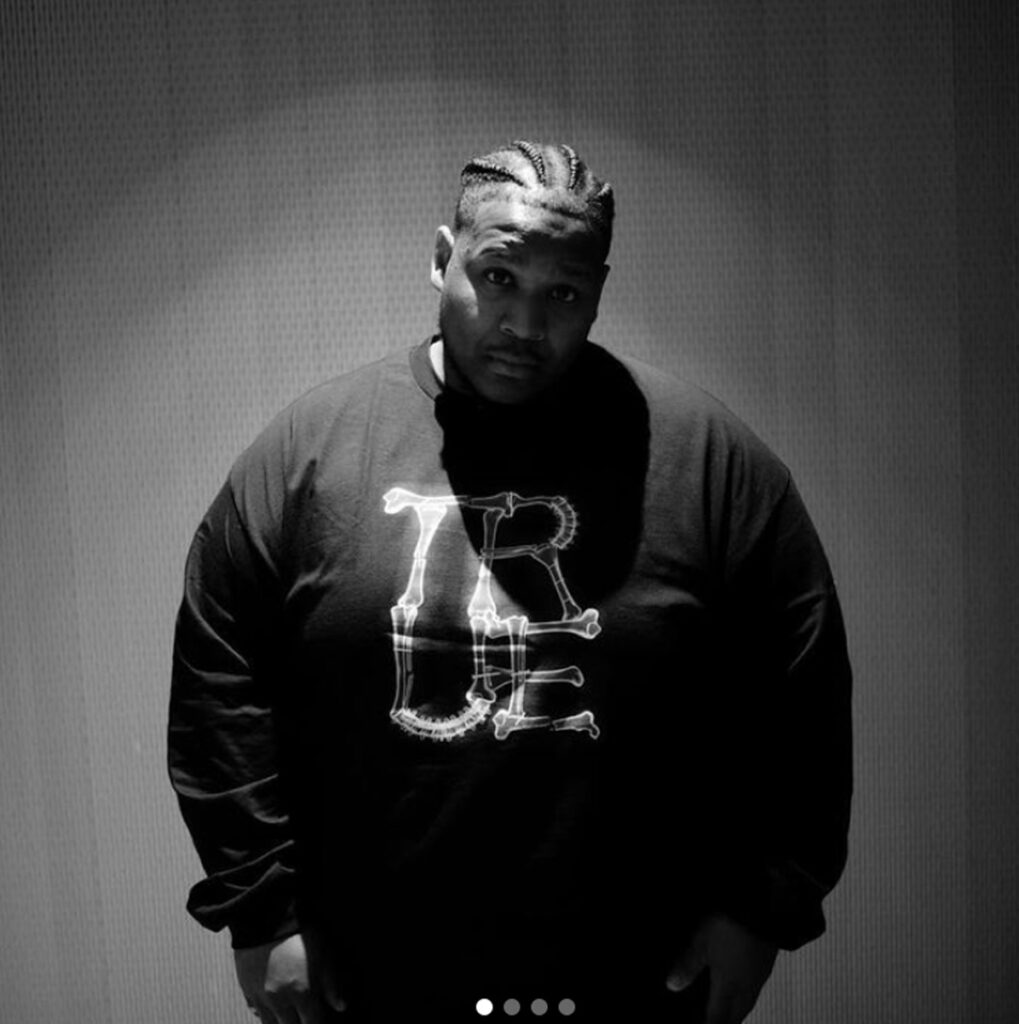
In Cuba, I found myself surrounded by filmmakers, dancers, and other artists who were making a living off their art. Hearing their stories and witnessing their courage was incredibly inspiring to me. It was as if they all had the courage to pursue their passions despite any obstacles they faced.
There was a particular conversation in a nightclub with the woman who invited me on the trip. It felt like a moment where God was using her to speak directly to me about changing my life and fully pursuing my passion. That entire trip gave me immense personal growth and the bravery to stand by my convictions. I am an artist at heart. I grew up loving hip-hop culture, and as a teen, my trajectory was always to be involved in this culture.
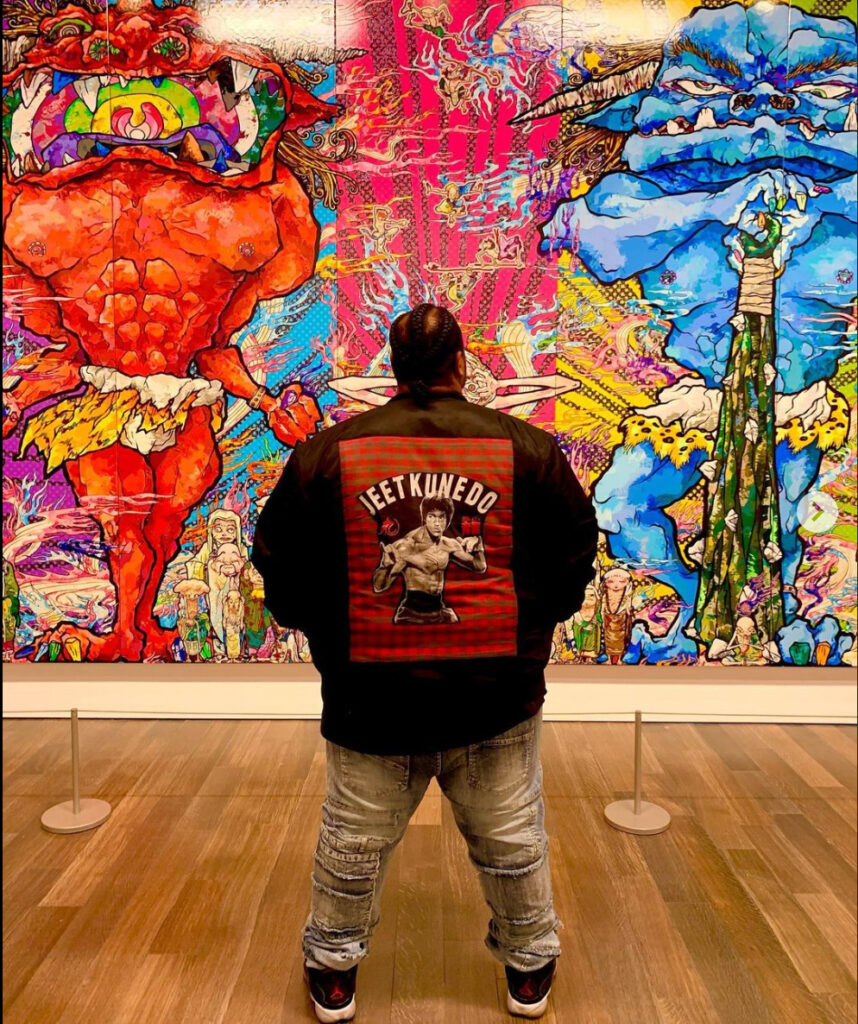
Seeing my life evolve from a mundane 9-5 job, where I felt like I was pretending to be someone I’m not, was more disheartening to me than anything else. It gave me the courage to say, “No, I’m going to be an artist.” “I’m betting on myself because I know I have the talent and passion to succeed.”
Regardless of the challenges and hardships, I knew there was something within me, and I kept pushing forward, striving to be as consistent as possible.
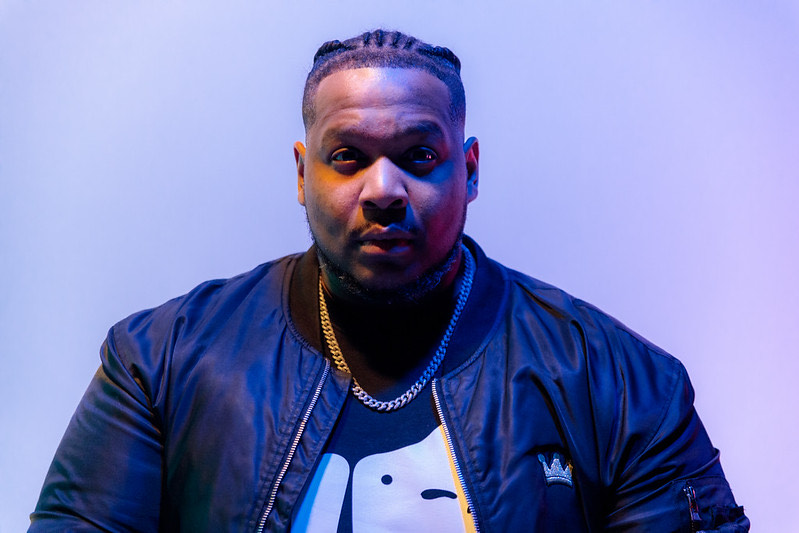
That’s beautiful, man. Especially in a place like Cuba, where the cultural landscape offers a unique perspective compared to the States. The culture seems to be a little bit more appreciated overseas.
A lot of people within the music industry make it seem like Europe is where people go when they’re not really relevant in the States. You go to Europe to get it popping. No, wrong… The reason people are going to Europe is that hip-hop is not yet the standard culture out there. It’s still counterculture. It’s still rebel music.
And if you grew up in the nineties like me or even in the early 2000s, what you responded to in hip-hop wasn’t that it was selling hamburgers, it wasn’t that it was selling movies or any of that. You responded to hip-hop because it was rebel culture, it was the other, it was the outlier. It was that thing that if you knew, you know, and out there it’s still the same thing.
There’s a humongous audience that respects the counterculture that is hip-hop and they appreciate and revere artists that really pioneered that particular area. Any artist that is evocative of that, and that’s what they’re responding to. That’s what they responded to in Cuba. That’s what they’re responding to in every other continent except for the United States, where hip-hop has now become pop culture.

There’s a particular brand of hip that doesn’t necessarily align with the foundational principles of what got this whole thing started. So we’ve kind of lost our way in the States to one degree or another. in terms of what the masses are consuming verses overseas. Where they still embrace the essence of it.
You know, the “Real Hip Hop,” or whatever you want to call it, is just culturally based. It’s rooted in the party, the jam, the transformative nature of expressing yourself around people who feel the same way. That still is very much baked into the culture outside of the country.
I felt that among my peer group I traveled to Cuba with. I felt the reception just from Cubans in general. When I was in New York, the same thing. Any place I’ve been outside the United States, that’s what they’re responding to. So I just heed that call and recognize that this culture is global. And they still rock with the actual culture of it as opposed to the pomp and circumstance that are produced by the music industry.
What made made you leave New York and move to Cali? Was it for the music?
I always say I came for a woman and I stayed for the money. My ex-wife, the mother of my kids, is the reason I came out here. I was 20, 21 years old, touring the road with people like Dead Prez, Killer Mike before anyone really knew who Killer Mike was. Shout out to Lyricist Lounge, Ant Marshall, the whole team over there.

They are the ones who put me on stages on the road opening up for artists like Young Bloods, Big Daddy Kane, Boot Camp Click, etc. I was opening up shows all over the country for these guys, very young, very green to the entire music industry.
Coming back off that tour, I’m thinking, ‘Oh, it’s about to be lit’ and popping,’ and it really wasn’t. People owed me money, I was evicted from my apartment, but in the midst of it, you fall in love and I thought, ‘Okay, I need a change of scenery.
So I went out to California to get a change of scenery but at the same time, I was really bitter and pissed off at the music industry. I was ready to get a regular 9-5 job. When I figured out they were paying me more money than I have ever made at the time for doing basic things, it becomes a comfort zone for you. So I stuck with that. But there’s always that itch in your soul you can’t shake if you’re an artist. The want to write and express yourself and the need to pursue that.
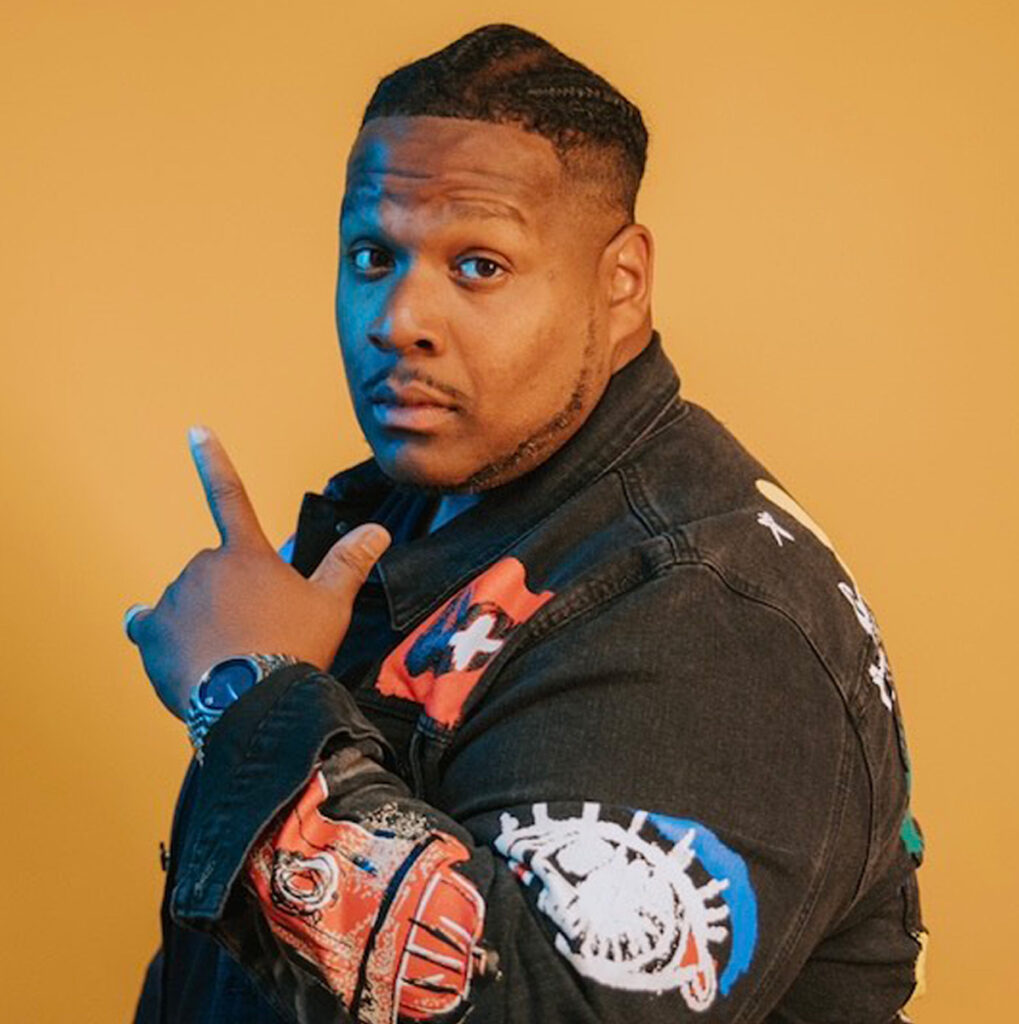
I’m a person that deals in extremes a lot. At a very young age, I’ve made a conscious decision to immerse myself in my art. I like the art, you know what I’m saying? So regardless of whether you see a picture or hear a song, it’s always heavy on the art. I live and breathe this. That wakeup call came for me when you’re recognizing that you’re not serving your purpose. Your purpose is bigger and better than what you allow yourself to do because you’re scared.
When you get to the point you’re no longer scared and your comfort zone no longer gives you comfort, that’s what’s going to give you the conviction to break out of that mold and do what you really need to do. It’s been over ten years, and I haven’t looked back.
The Bay Area, particularly in California, has really supported me. They gave me a community when I needed it the most. There’s a certain vibe out here that was very conducive to who I am as a person. New York was changing at the time. I’m still a New York boy; you can hear it in my voice, in the way that I rap, it’s still in me.
I go back home enough times to get my mojo back. But California is a good spot. It’s safe, it’s a good place to raise my kids. I don’t have any regrets in that aspect.
Do you feel like any pressure to have more of a West Coast feel?
I think people out here appreciate the novelty of a New York rapper. When you go to a showcase or an event where there’s hip-hop, you’re going to hear a lot of the same things sonically. As much as I love the Bay Area, everyone is trying to get on with the same kind of sound. A lot of slapping 808’s, a lot of handclaps, and a certain kind of cadence that goes crazy regionally.
Me? I’ve absorbed hip-hop from every region. I love what they were doing in the South. Deeper in the South like in Houston and places like that, I love what they’re doing in L.A. I love what they’re doing in The Bay. I really love what they’re doing in New York and the Midwest. I’ve absorbed it all, so when you hear my music, you’re hearing me pull from all these different regions in one way or another.
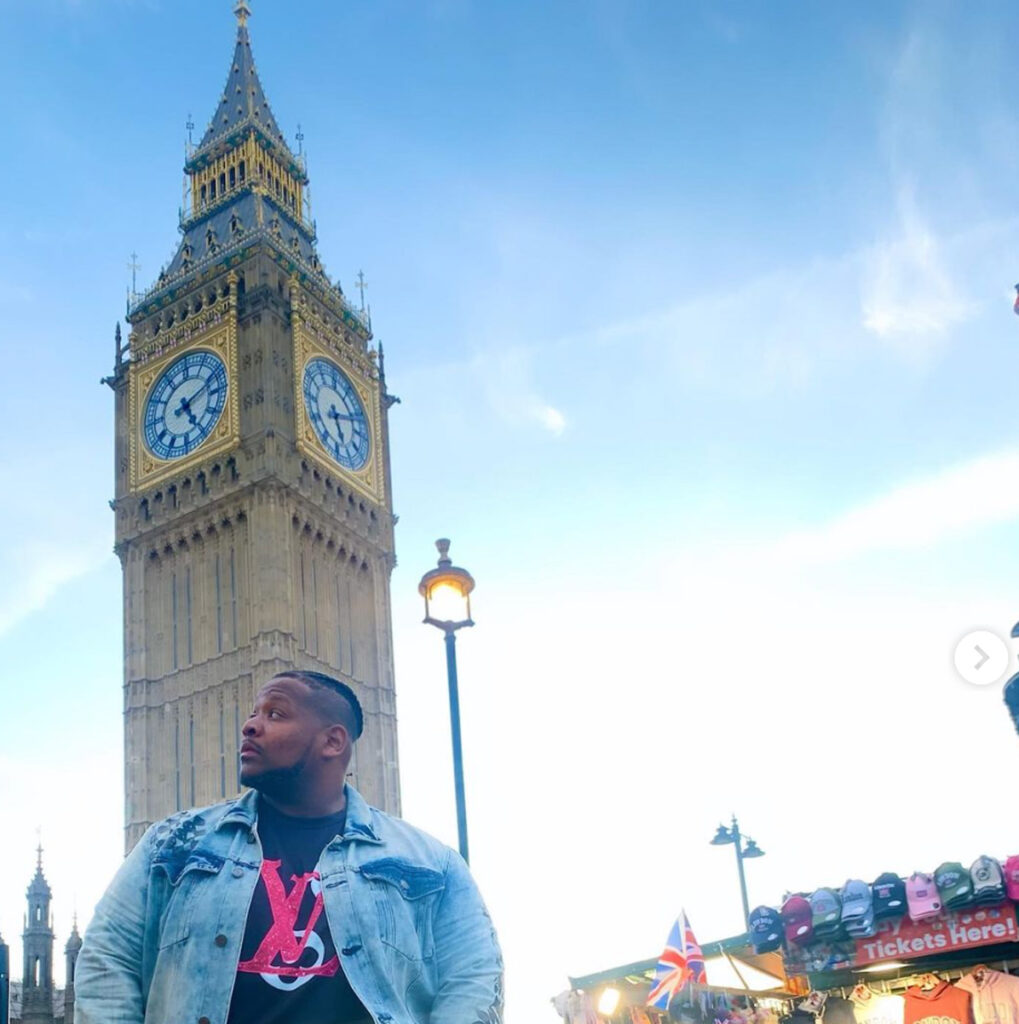
Whether it’s the double time, 808-driven stuff, or the storytelling that I was pulling from the Bay Area. When I first came to the Bay Area, a lot of the emcees I admired were storytellers. They weren’t giving you heavy punches or bravado; they were giving you introspection. That resonated with me because my entire career as an emcee, I was trying to push socially conscious music and introspection. Like all of our problems, whether it’s racism or economic issues like poverty or whatever, all of that is rooted in who we are as essentially.
So exploring that in my wordplay, exploring that in my subject matter, but then also giving you bravado, also giving you that flash, also giving you that hardcore head-nodding hip-hop. It created a sound for me.
In my last two albums, going down to L.A., changed the entire vibe of it because now I’m pulling from L.A. culture. You know what I’m saying? I’m in spaces where you see murals of Kobe and Nipsey, you know? Now you’re hanging around with the L.A. underground, dudes who are just getting on. Just absorbing it all. Thinking. Okay, this is how I can bring something original to the table as a New York-based emcee with a New York-based sound.
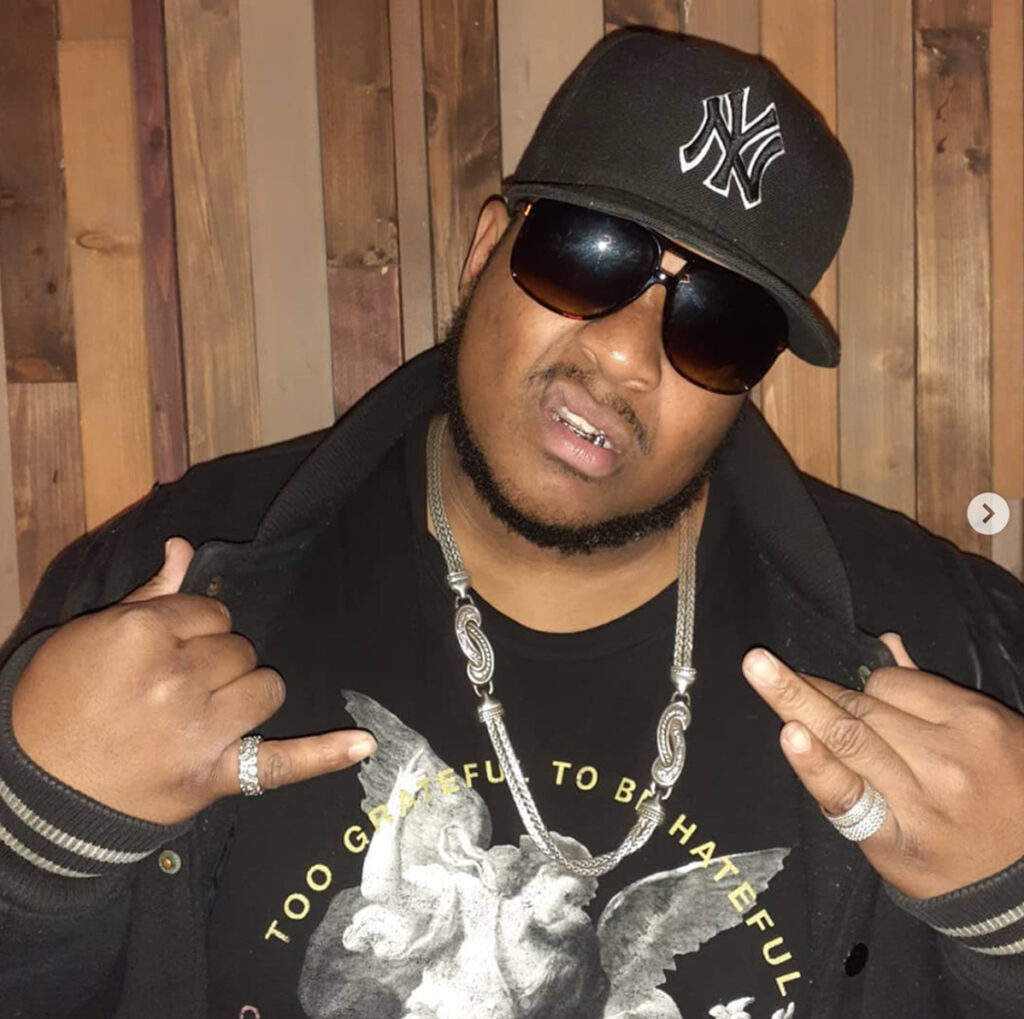
I can now pull from these different regions to create something that’s authentically unique. I think I’ve been able to refine the sound to the point people are really responding and connecting to the music.
Yeah, I want to say I feel you nailed that right off the back with “Walk on Fire“. It was raw and smart. Inspirational messgaes veiled perfectly in grimey acoustics,
Exactly. I have a song on there called “God’s Favorite” with Sean Price & Royce da 5’9, where I say “from the slave ships to the space ships“. And it’s important for me to say that because it’s like, look at the journey of hip-hop artists, right?
That’s an incredible story in itself. But just imagine, a party in the Bronx for black and brown kids created a multi-billion dollar industry that employs hundreds of thousands of people over the course of 50 years. That is an amazing story. That is just part and parcel of the larger story of black people, in particular, in our country, people of color in our country, and seeing our evolution from slave ships to where we’re going now in terms of making advances technological.
So sonically, when I’m playing around with these ideas, I want to give you gutter rap hip-hop, right? But at a certain point, we’ve got to stop talking about drug dealing. At a certain point, we’ve got to stop talking about killing people as this means of sounding like we’re dangerous because that has real-world effects on kids in these neighborhoods that we come from. So I want to make people think ahead. What’s next in hip-hop, what’s the next look? Let’s shoot towards that. Let’s shift towards those kinds of stories and those kinds of narratives.
So I appreciate you loving “Walk on Fire”. It’s the intro track for a reason. It was the first track I started working on for this album. That’s where I get the name of the album; the first line is “The God that sins”, another point of focus towards the end. I have a sound clip from the reverend Ike, who was more of a prosperity gospel-type preacher.
His ministry was in my neighborhood. The place he was preaching, they filmed portions of Belly, they used to perform. And I never knew that. I never heard any of his sermons before going on Instagram. His preachings connected and I was like, ““Oh shit, my consciousness is being echoed by this dude who I’ve never really heard from“. But I was only familiar with him because his church was in my neighborhood. So that whole song encapsulates the theme that is “The God that Sins“
As I digested each track, I found no filler ; each track showcases your respect for the craft. Standouts for me were “Walk on Fire,” “The Streets Get Fed,” and “Sun Sky” because they reveal different dimensions of your artistry. I observed a deliberate structure in the album’s pacing, starting strong and fast and then gradually transitioning to a softer vibe. Was this intentional, creating a rollercoaster effect in the album’s energy?
Yeah. I mean, you know, I’m hyper intentional with the way that I craft the albums now. Since my album Crowns, I kind of locked into a formula. I locked into a sound. It’s a procedure by which from the start of creating the song until you actually hear it as a listener. Everything I’m writing, everything I’m doing is very intentional. from the drops , to the snares , everything is there for a reason, which is why you’re experiencing it the way that you’re experiencing it.
For me, it was about sequencing once I had the songs that I knew I wanted. I recorded over 40 recordsfor this album. Once I had the songs that I knew spoke to the experience that I wanted to give people, it was about the sequencing. So I sequenced it in two places. I went to the Jay-Z exhibit in Brooklyn, “the Book of Hov” , and literally sat in this recreation of Baseline Studio.
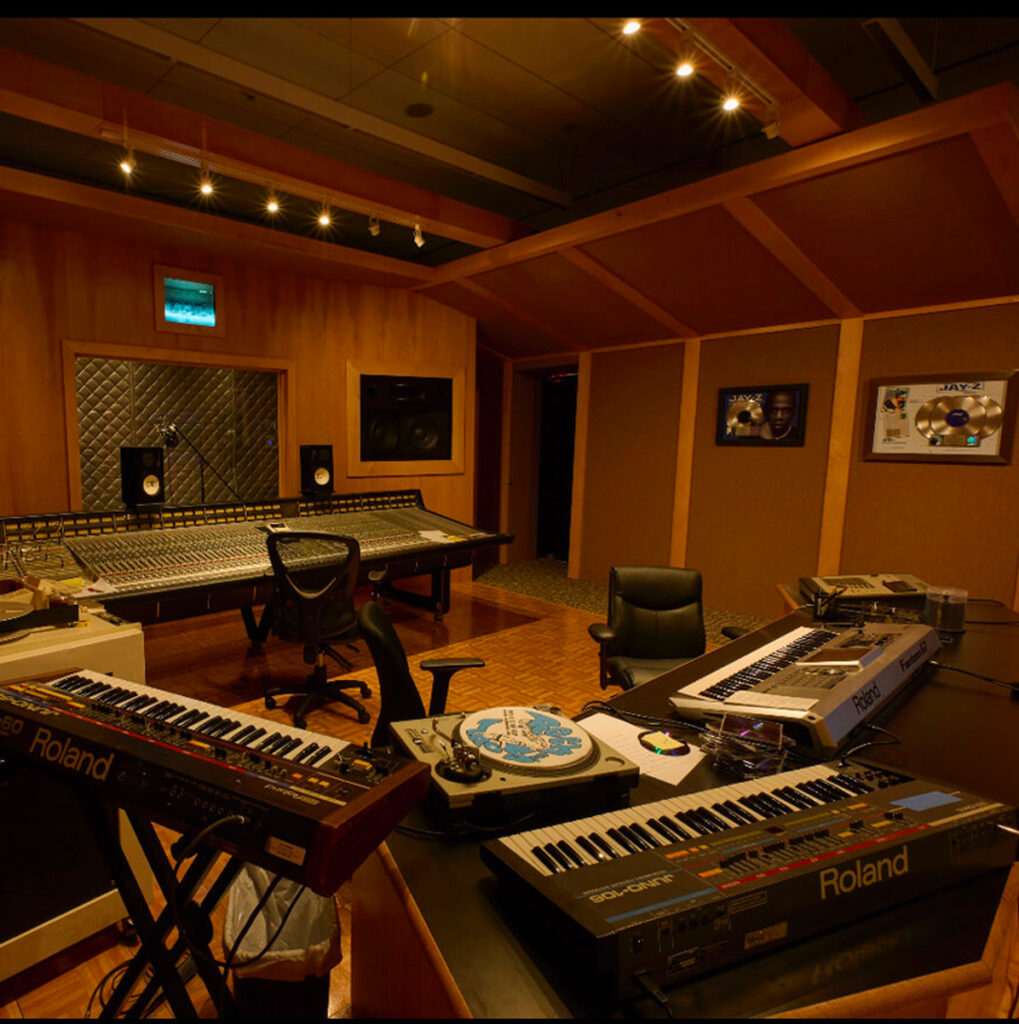
The Security lady knew what I was doing, so she just let me rock. She let me sit there, even though she was telling me “ you know, people are not allowed to sit down here.” “I don’t allow people to sit there, but I will allow you to sit there for as long as you need”. I’m like “cool, thank you”. She was very motherly.
Just being in that environment I started sequencing the album in terms of the arc that you’re referring to. I wanted it high energy. I wanted to give people the lyrical prowess in the beginning of it so they know what I’m on.
If You never heard of UnLearn the World before you got to know what he’s on within the first four records, you’re going to see the ebbs and flows. And then once I’ve built that equity of trust with you and you want to continue listening to the rest of the album, Let’s give you introspection, lets give you emotion , lets give you substance that you’re not going to hear in any other album out.
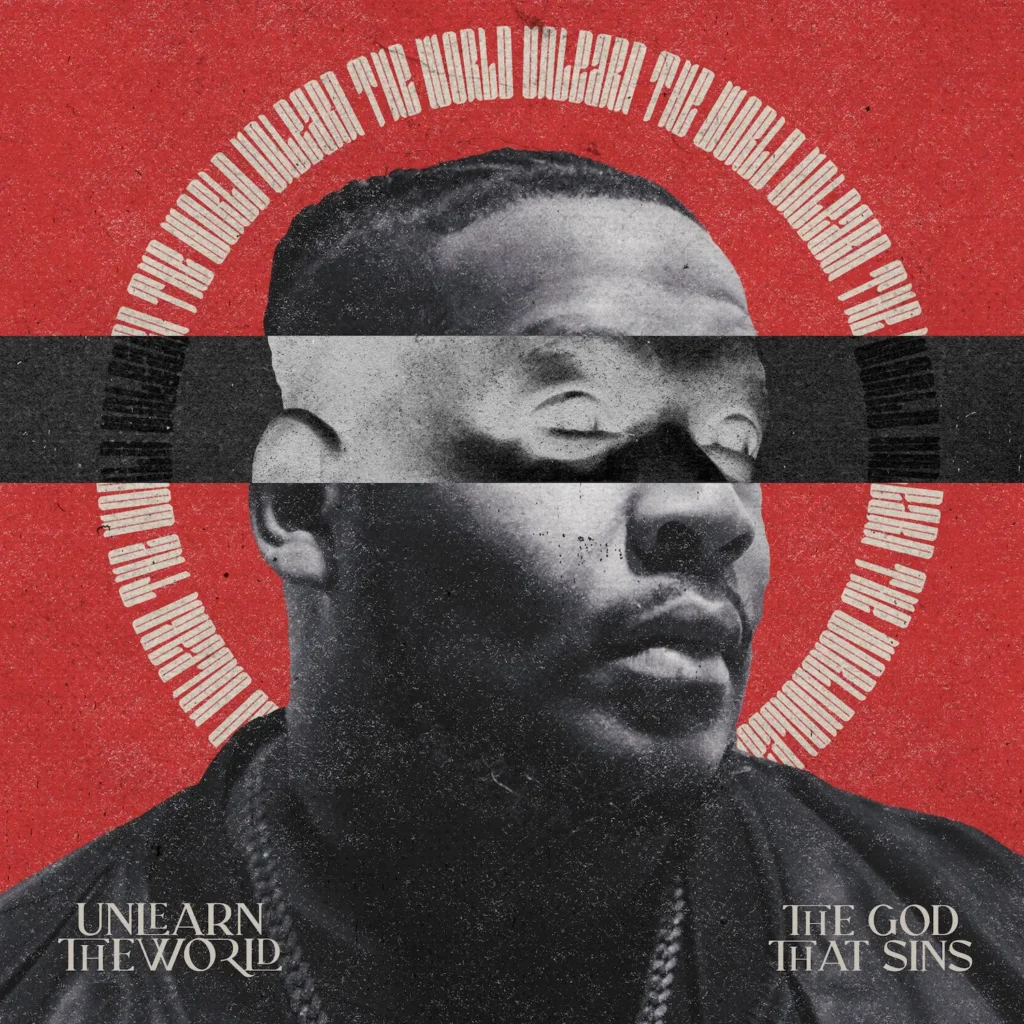
Currently everything in flash, everything is pompous and circumstance, sliding on opps. And II’m fucking bad bitches and I’m doing all of this is like, All right, we hear that. But what about you, bro? Well, what about you, sis? What are you really thinking about when the lights are gone and there’s nobody around when you’re sitting with yourself, what are your thoughts?
And for me, that’s. prayer. Talking to the God that sins within me is my new religion, is me sitting with myself is really a prayer. It’s really meditation. That’s really who I am at my core, that is my lower self. Having honest conversations with my higher self. And I wanted to show that dynamic in the songs that come later on in the album.
So songs like Loyalty and Lawyer Fees, other records like More Money, More Time, a little bit. Is it over for me, with my man obey ben Yoko, and Isiah Mustafa. Those records to me speak to the human side of who I am because you’re going to get all the superhero shit and the bravado from the lyrical miracle that you heard earlier. But now here’s the human side, right? you can relate to the human in a way that a lot of artists aren’t doing.
In “Loyalty and Lawyer Fees“, you have a bar where you mention “getting paid for writing“. Have you done any ghost writing or were you referring to just music in general?
Ghostwriting? Absolutely. It’s not even called ghostwriting anymore; nowadays, you’re just considered a writer. I’ve written songs for artists internationally and participated in writing camps for major albums, although I can’t discuss specifics due to NDAs. In LA, it’s common to be involved in such camps, aiming to land placements. I’m well-grounded in my songwriting abilities; not only do I write raps, but I also produce beats. In fact, I crafted three out of the four beats on the album.
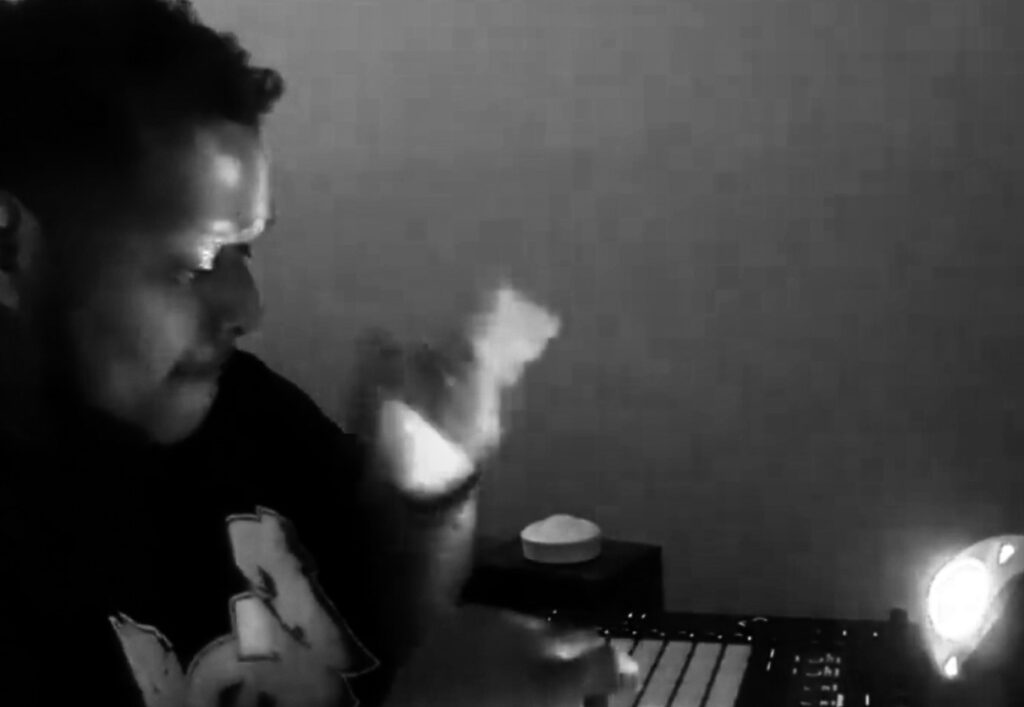
The last album, I made 80% of the beats. But I also produce. I can I can hear a record, I can hear a beat, I can hear the artist, I can craft an emotional experience with that record. I know my ability to do that. So that’s what I’m saying.
That’s pulling from like a Dr. Dre Quincy Jones type inspiration when I’m doing that. So it really just is it comes down to like really just saying, okay, as an artist, how do I kind of scale up my ability to create?
It started with rapping, but now it’s being intentional about every aspect of the record, from the cover design, from the way we shoot to the Instagram reels or the music videos, and just creatively in all of that. So me as a creative, as a person who lives in his art, it’s really easy for me to make the transition from rapper to producer, from producer to beat maker, from beat maker to executive producer.
All of these things kind of fall in line with each other. L.A is just a good spot to really showcase talent and find opportunities outside of doing what most people would consider underground hip hop.
Track Pros produced a large portion of the album. How did you link up with them and did you use them primarily to help with the workload? Or were they just that dope You were like, you know what, they’re just getting all the slots”
I respected and admired them. Rather than trying to take the entire workload on my own and come up with another self-produced album, I said, Let me just get a rapper mode and make them and their production dictate where I’m going.
So I’m listening to their beats, I know how to curate my story just from the beats they’re providing. I also wanted to kind of lock in with just a singular producer. I could have other producers on the record, like swisher beats, myself, Other people contributed, but I wanted a lot of the landscape to be cohesive in that.
You’re working with a main producer very similar to “It was written” by Nas. It was an album is Predominantly produced by Track Masters, right? This is what gave Nas a more commercially appealing sound on the heels of an Illmatic classic album.
The pressure was on for a person like that to now Duplicate that level of excitement about an album and “it was written” was off the beaten path of what he did with Illmatic.It was more commercialily, viable.He still had introspection, hE still had Street Shit, he still had, you know, things that ground you in the culture. But then at the same time, there was a level of expense to it, you know, like the production level was expensive and I wanted to give that right. Like, I wanted to give you something gritty, But look at the features.
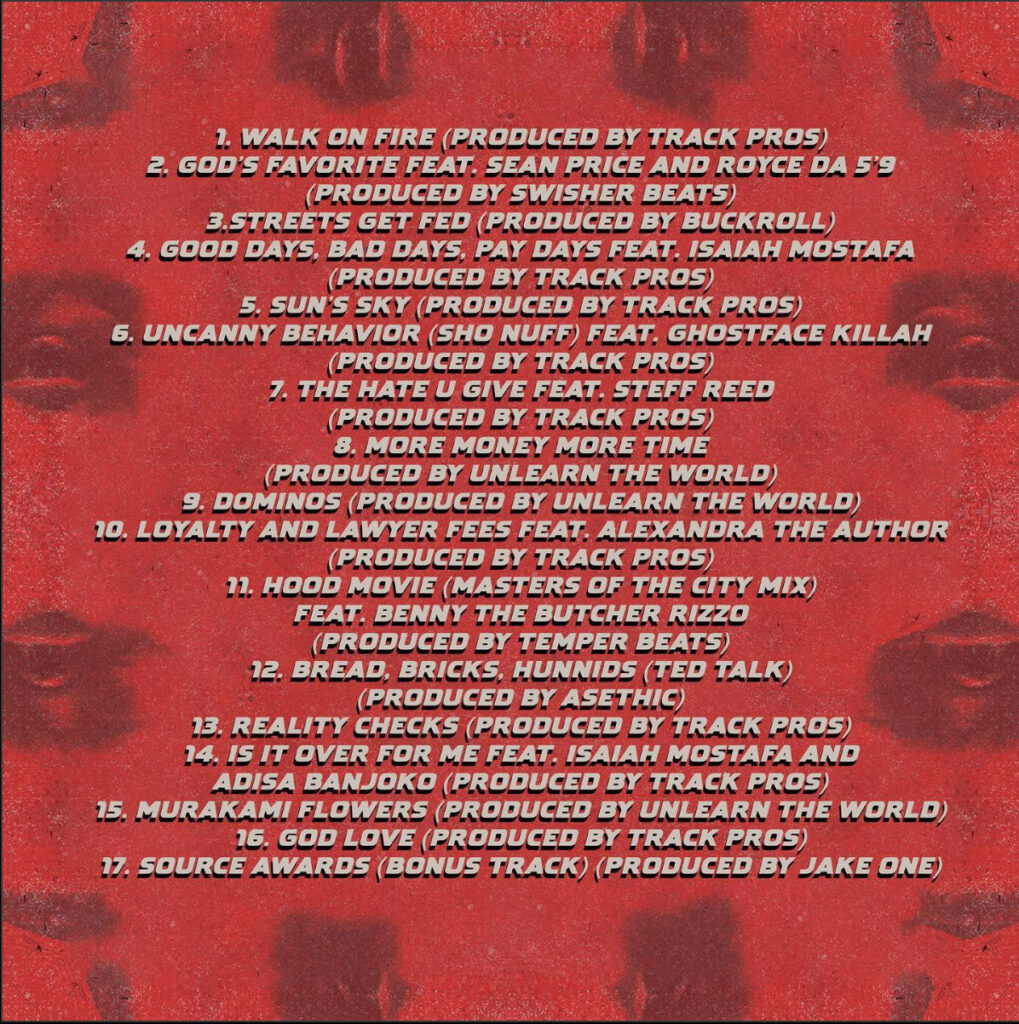
Listen to the quality of the production. This is a not is not just cheap, you know. I’m saying shout out to my man Wash, who engineered the whole album and mixed it.
He’s worked with everybody from Puff, iHeart Radio, I’m not going to scream his resume for him. But nevertheless, these are people who know what they’re doing. And as a producer, it was really liberating to delegate responsibility to people who are in their bag. Track Pros were in their bag. They’re still in their bag. I’m working on the deluxe album now and they did the majority of the deluxe songs. So it’s one of those chemistries where I just I continue to be inspired by them. That goes for any producer. If I’m inspired by what I hear I’m going to keep working with you as long as I’m inspired.
Speaking of inspiration, You’re also a Representative for Hip-Hop For Change.
I am. I’m the education director and the acting executive director. So I’ve been I’ve been working with this organization for about 6 to 7 years and now I’m blessed to actually run the organization. And it’s it’s hip hop 2.0.
It’s hip hop to the next generation. It’s like all the things that a lot of artists like myself wish we had when we were younger. That tutelage, that mentorship. I can now work with other local artists and give that to these young kids that are starting to just step into their creativity.
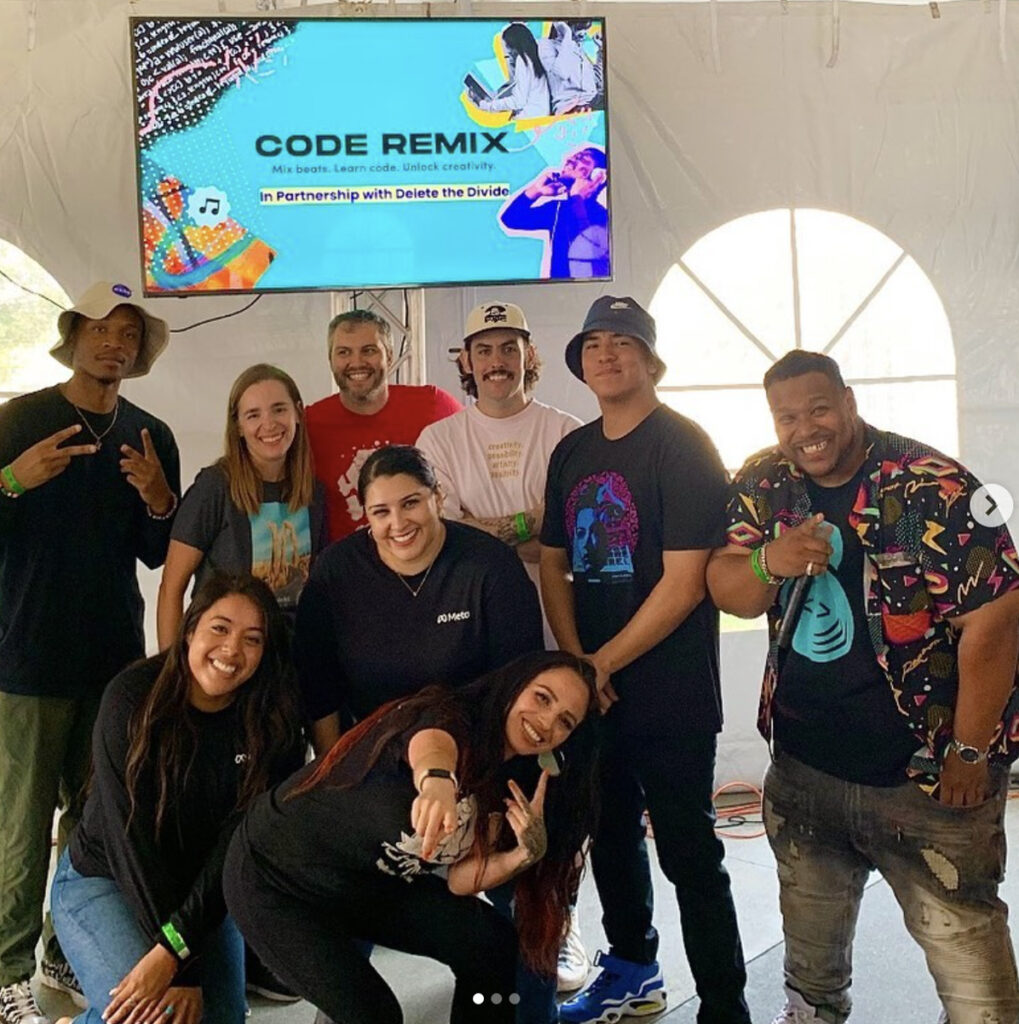
They’re just starting to step into learning about themselves. We do kindergarten through 12th grade education or arts. We work with middle school, the high school kids on how to properly introduce them to hip hop, with all the foundational principles of hip hop and the true history of it, because, you know, even grown people in the music industry now- don’t know the history , and don’t know how it started and who were the key players and people. I think that’s important. I think knowing the history of this culture that’s so pivotal.
In our society is extremely important, more particularly because it changed and informs the way that you create it. iF You understand the history of it. I don’t think you’d be talking about Sliding on Opps as much. I don’t think you’re talking about a lot of the themes that go on within the music industry because you recognize what this culture comes from.
So having the opportunity to teach young kids what they don’t know and put the gas in theier tank, for them to now engage in the culture from a space of social and communal responsibility I think is major. It’s not not just rapping or making beats. We’re talking about all the elements.
So teaching little kids about the dancing getting the kids to learn Djing, Graffitti. How that can evolve into an actual career for yourself when you don’t have to code. switch, you don’t have to put on the white boy interview voice that a lot of people feel they have to do.
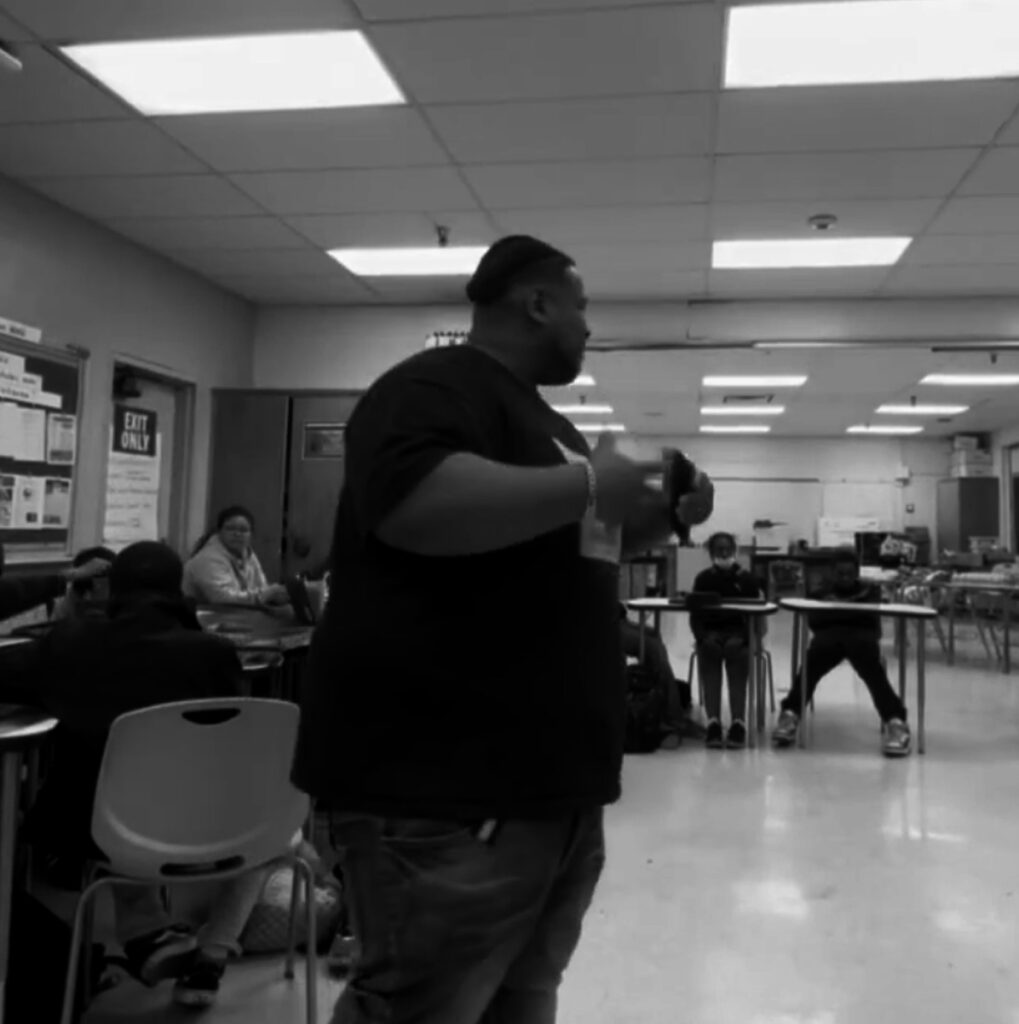
To be able to articulate yourself in your most authentic voice. A lot of the kids that come across don’t think they can rap because they don’t want to rap about a lot of the things that other rappers rap about and because they can’t relate to that, they think, I can’t rap because that would mean I would have to lie about who I am. I’m like “NO. You can rap about who you are and still be welcomed and invited into the space, Because you’re authentic and you’re original.”
It’s been a really it’s been a real blessing to have that kind of opportunity to teach. It adds another aspect to my brand as an artist UnLearn the world. There has to be some level of education in what I do.
That’s so Important. So that encapsulate the meaning of the name UnLearn The World?
It’s unlearning what the world has told you about yourself, it’s not just like, “Oh it’s the education system!.” we all know that’s problematic in one way or another. It’s what society has told you about yourself. It’s what your parents have told you – People on your block, Like who are you when you’re not around those influences?
Who you are at your core and you’re getting messages or being recommended, things that are opposite of what you are naturally inclined to do, then those are the things you have to unlearn. By the time you’re ten years old. Growing up in the environment that I grew up in, that you grew up in, That you grew up in you have a lot of expectations. Your parents expect certain things from you, your neighborhood and block, expect certain things from you, right?
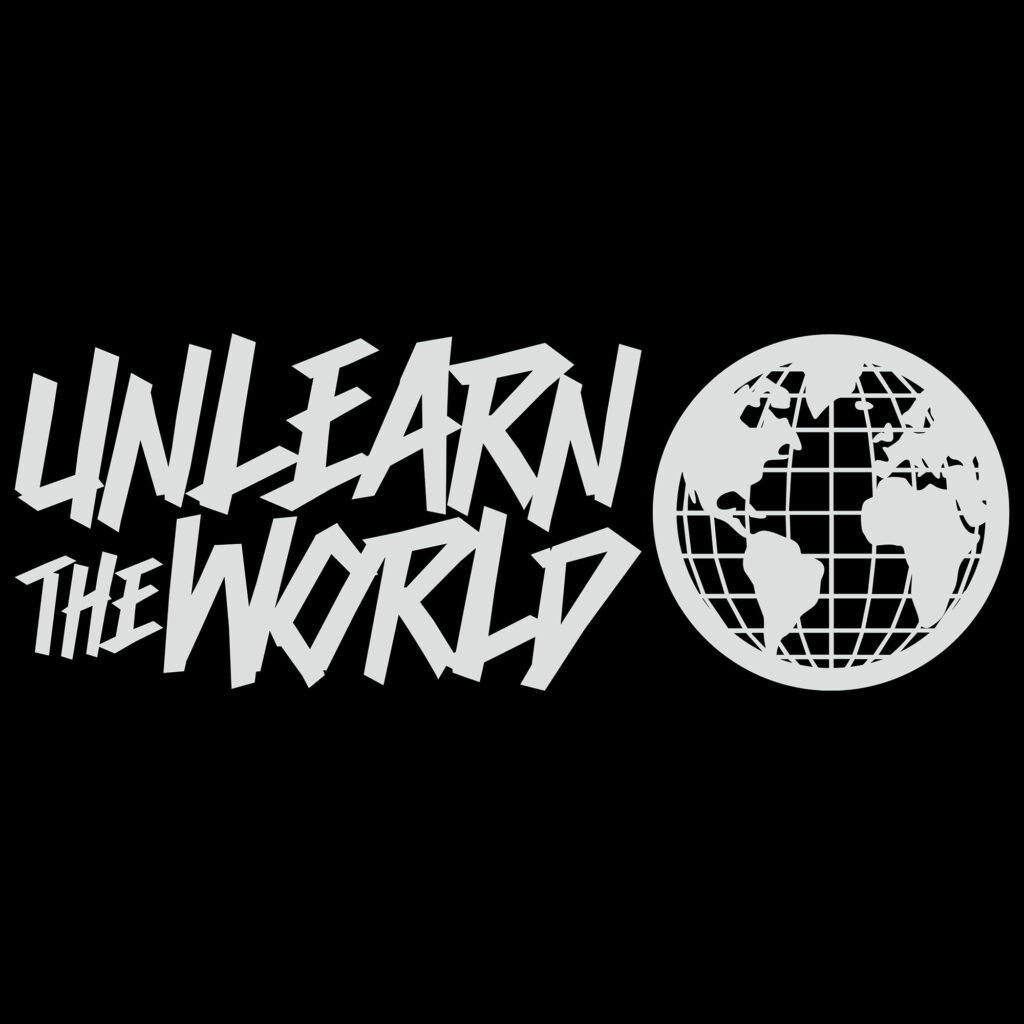
Society is telling you that you should expect to do X, Y, and Z or be X, Y, and Z, at a certain stage in your llfe, you’re given this agenda that isn’t yours. What I’m encouraging people to do is create your own agenda, become the main character of your story.
But before you can take that responsibility, it’s a lot of responsibility to take full and radical accountability of your own life, Right? I’m still working on it. Which is what you hear on the album. It’s me working it out. But before you can take radical accountability over your life, you have to unlearn the things that are no longer serving you. The people that are no longer serving you.
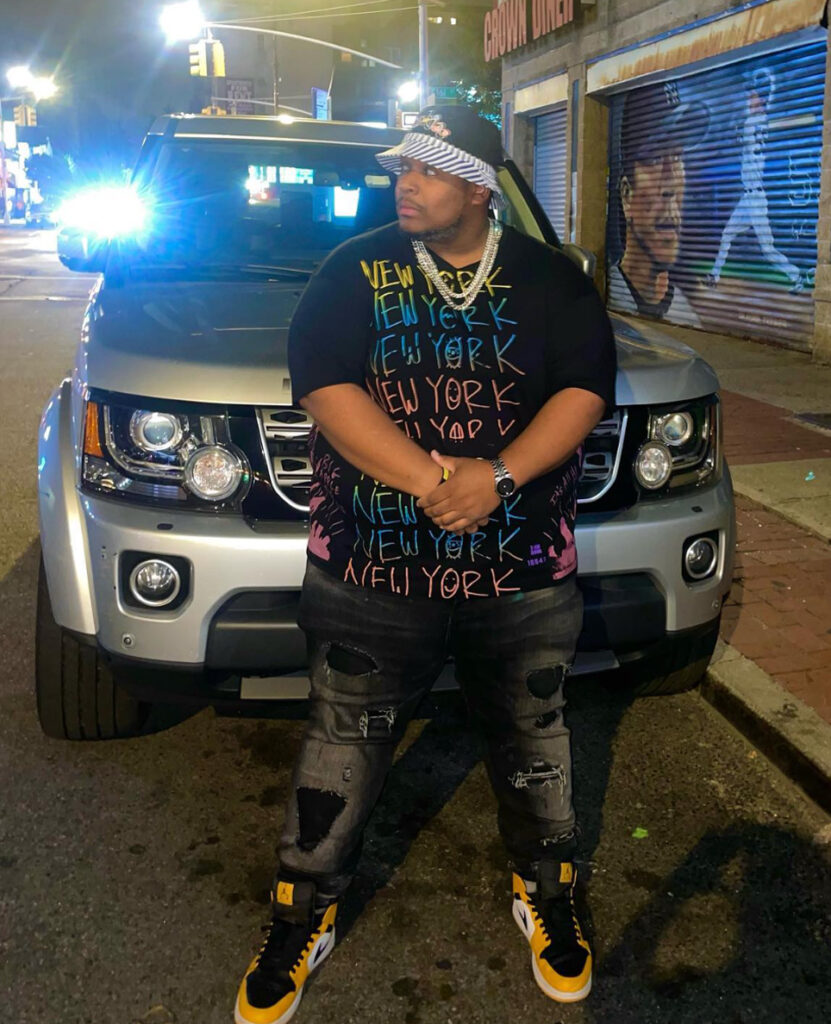
You know what I’m saying? Which is a very hard thing to do. We’re all struggling with what I’m saying, whether it’s being on a diet, whether it’s going through a breakup, we’re all unlearning something or have to Unlearn something one way or another.
I just made it my rap name. I just took what I know everybody is going through on one level or another, and I put it out. So if you saw that on a wall somewhere. You saw that on a T-shirt somewhere. You never have to know. My rap album exists but you can still relate to the term unlearn the world, because it’s something that everybody needs to do to some degree or another.
You have a lot of heavy hitters on the project. Have you interacted with any of them in person?
For the most part. I have stories in interaction with a lot of artists that are on my album. Ghostface in particular I’ve shared stages with time and time again over the last six years. one of my favorite moments as an artist ever was doing O.D.B.’S verse on protecting your neck on the same stage at the same time as Raekwon and Ghostface. That’s one of my things, that happened in complete happenstance, but it’s one of those magical moments that I always take with me. And then literally a month later on my birthday, I did it again But this time it was just with Ghostface.
I’ve had interacted with him several times, we know a lot of the same people. It’s really relationships. Any artist out there looking to get big name features it really comes down to the relationships that you have. I’ve been in the music industry on and off for the last 20 years.I know plenty of people and I keep good relationships with them.
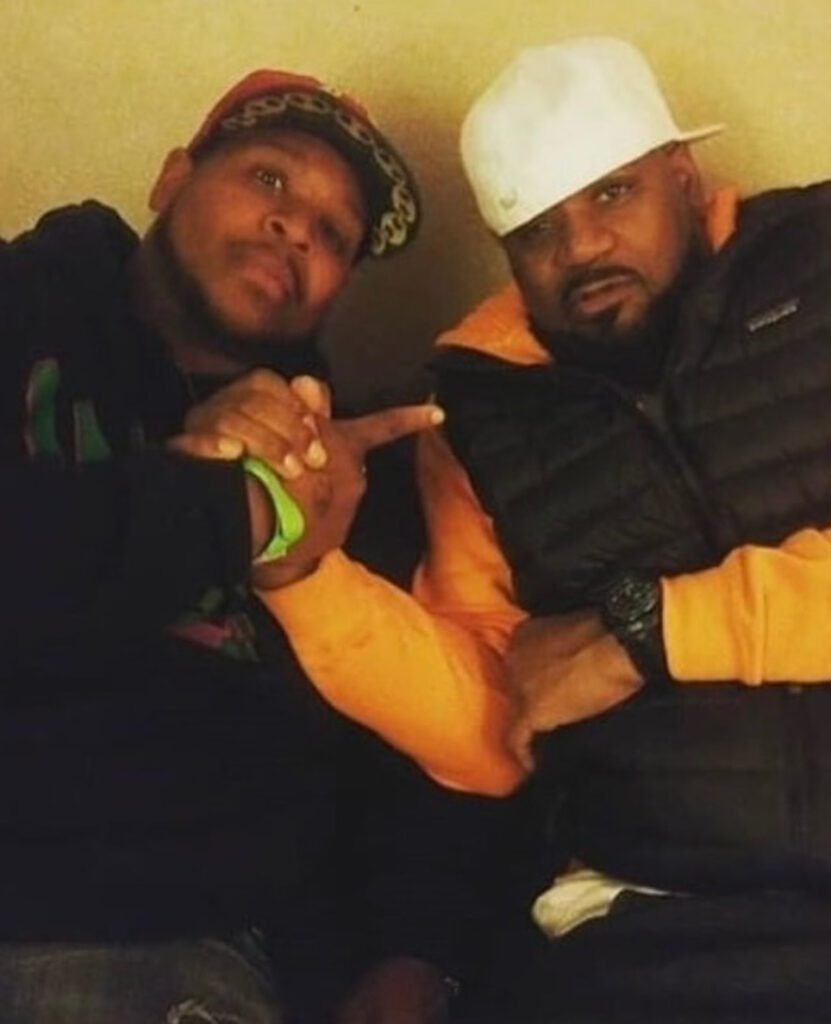
So when I when I hear a record like “Uncanny Behavior” I know that I have Ghostface on, I know that the record needs Ghostface on it. Like that sounds to me like a record that Ghostface should be on. So then I had to make the play, same thing with Royce da 5’9 and Sean Price. I know a lot of people in Boot Camp Click like I said earlier,. I opened up for them, shout out Rustee Juxx, I’ve known him since I was sixteen years old.
As you move through this industry. And as you move through your career within hip hop culture, there’s a lot of full circle moments if you’re successful or if you deem yourself successful. there’s a lot of “I used to listen to this dude when I was a kid, and now I’m in a room with them” moments. Or “I used to listen to this person as a kid and now I’m on a song with them in the studio cooking. I wish I could have been in the studio with Sean Price working on this record. I used to go to Detroit a lot and have a lot of studio sessions in the same space Royce records.
His voice has always been a point of inspiration. So it’s just knowing when to shoot the shot, having the record ready, and having the budget ready. That’s an important factor. Not everyone is your friend and are going to do it for the love or because you’re dope. They are businessmen and they are trying to feed their family. Same thing I tell artist that try to book me for a feature.
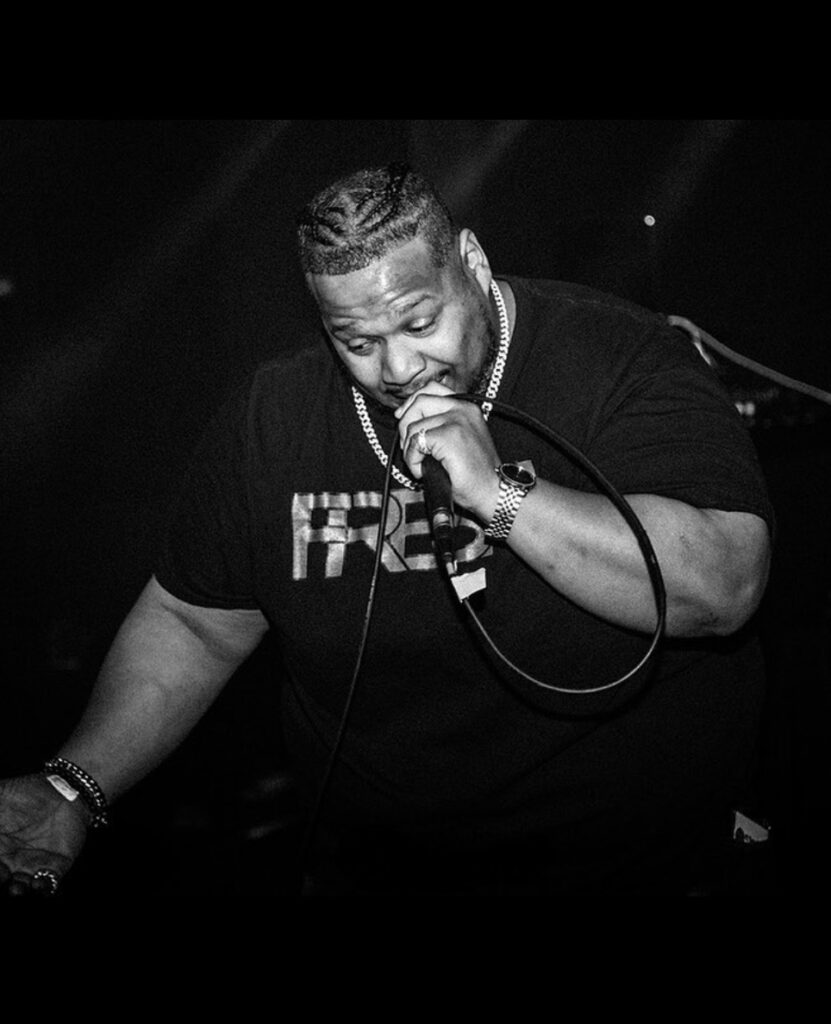
If you’re the homie, homie, I’m going to do it for free because I love you. But if you’re coming randomly out of nowhere, then there’s a number for that. There’s a fee to adding value. You got to support the artist doing the work.
But for me it was about being intentional about every artist that I had on this album, Benny Tne Butcher, Sean P, Royce, Ghostface any of the singers that I have are super intentional having to record and hearing their voice before I even played it first. That’s that’s part of me being a producer. Yeah, it has to be that way. So it doesn’t just sound forced, you know?
Right. It has to be natural
If you get a feature from a big name artist, The one thing that is your responsibility is making sure that it sounds as authentic as possible. Make sure it’s mixed Right? Make sure that Their verses in a pocket and Your verse is in a pocket. That’s was was the challenge for me. These are heavy hitters, my favorite rapper, so I had to show for my record. And I think we did that.
Are you still on the “God that Sins” Tour
Yeah, so I did it in two spurts. The first leg of the tour was with Skyzoo. we had a homecoming show in San Francisco with Raekwon. That was an amazing tour. I think I did a show with Stove God in Florida and a show with Freddie Gibbs.
Florida was the one held by Clockwork Music?
Yeah shout out to Clockwork Music. The second leg of the tour was International. You did s couple of shows domestically in Florida with Stove God, again. then we did the UK tour, which was sold out. Amazing shows with GZA, and The Funky Nomad they’re an amazing band. Shout to Ramsey Jones, he’s ODB’s older brother.
He’s the lead drummer of the band that plays with GZA. Amazing, amazing. And now we’re closing with the last two shows. I got one tonight in Vallejo And then I’m closing off the tour Tuesday, March 5th, where at L.A.at the legendary Whiskey Go Go a venue out in L.A with Stove God Cooks.
Jay Worthy is going to be in the building. My man TX, is going to be in the building. I’ll also did a show with NEMS. I got to record with NEMS on my last album. Shout out to NEMS. Yeah, just putting together the tour myself, aligning myself with artists who are very similar to me or who are collaborating with on one level or another.
It’s always makes for a great opportunity to get my music out to more and more people. You know, UK tour was a game changer, so we’re trying to ride the wave of that. but it gives you so much education in terms of how to perform, how to create a memorable show experience, all of those things that I’m definitely ready to duplicate and improve upon next time I go out on tour. Hopefully there will be a lot of big steppers out there.
Hopefully we’ll be able to catch you on the East Coast soon?
Yeah, I think we want to do an East Coast like New York show. The last time I did New York show was at the Nuyorican Cafe which I grew up going to doing poetry readings and all that. it was a low turnout. I’m not going to lie to you. I think mainly my family showed up.
It was like a family reunion. And as take away from me was a lot of my brothers haven’t been in the same room for decades until that day. But in terms of a turn out, It wasn’t really a big turnout. So the next time I do a New York Show t’s really needs to be a good turnout. I need to feel the love in the building. So I’m working towards that.
Any last words?
Appreciate you having me. The God That Sins is out now!
- Walk On Fire (Produced By Track Pros)
- God’s Favorite Feat. Sean Price and Royce Da 5’9 (Produced by Swisher Beats)
- Streets Get Fed (Produced by Buckroll)
- Good Days, Bad Days, Pay Days Feat. Isaiah Mostafa (Produced by Track Pros)
- Sun’s Sky (Produced by Track Pros)
- Uncanny Behavior Feat. Ghostface Killah and Butch Swim (Produced by Track Pros)
- The Hate U Give Feat. Steff Reed (Produced by Track Pros)
- More Money More Time (Produced by UnLearn The World)
- Dominos (Produced by UnLearn The World)
- Loyalty and Lawyer Fees Feat. Alexandra The Author (Produced By Track Pros)
- Hood Movie Feat. Benny The Butcher (Produced by Temper Beats)Bread, Bricks, Hunnids (Ted Talk) (Produced by Asethic Beats)
- Bread, Bricks, Hunnids (Ted Talk) (Produced by Asethic Beats)
- Reality Checks (Produced by Track Pros)
- Is It Over For Me Feat. Isaiah Mostafa and Adisa Banjoko (Produced by Track Pros)
- Murakami Flowers (Produced by UnLearn The World)
- God Love (Produced by Track Pros)
- Source Awards (Zero Chill) *Bonus Track (Produced by Jake One)
Everything UnLearn The World I Follow on IG

